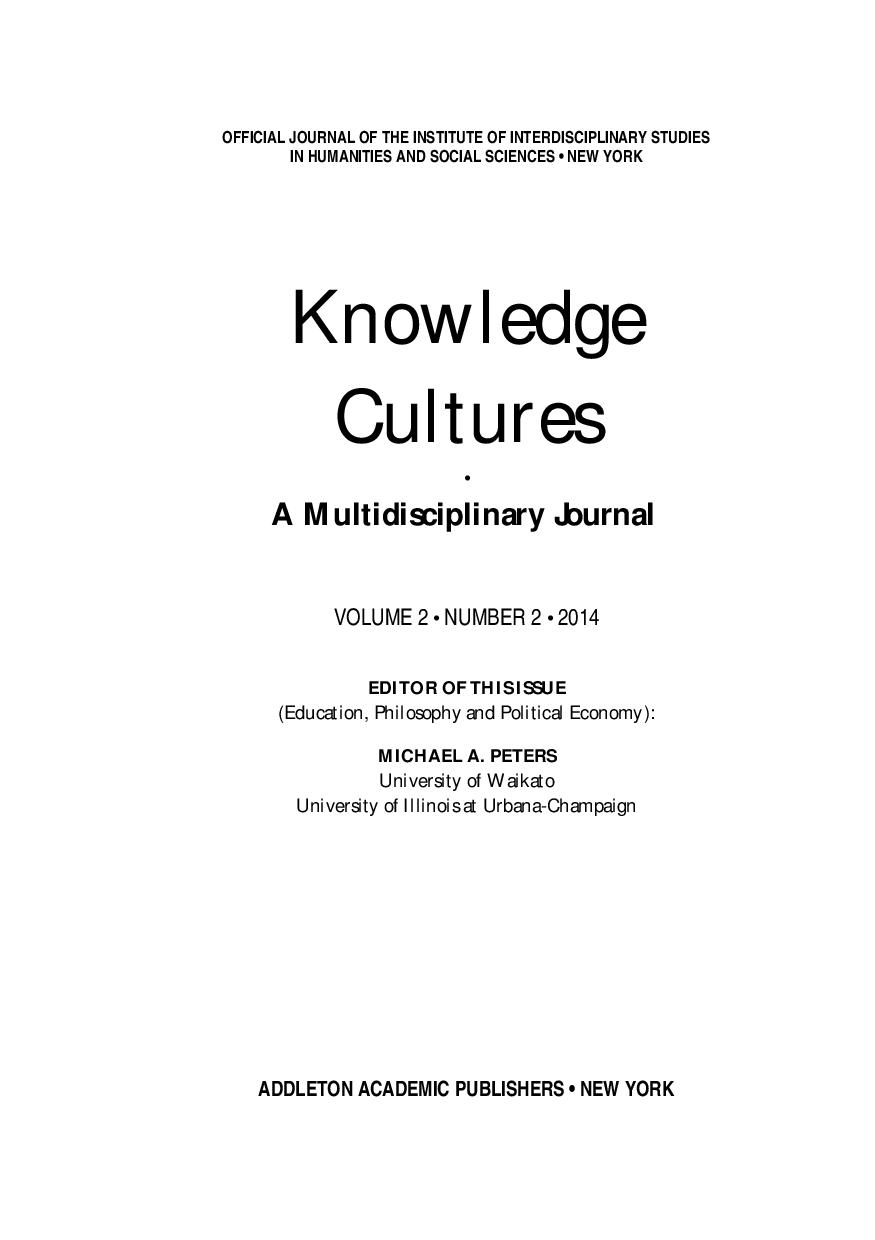IN RESPONSE TO FOUR CONTEXTS: THREE IDEAL TYPES
IN RESPONSE TO FOUR CONTEXTS: THREE IDEAL TYPES
Author(s): Sharon RiderSubject(s): Social Sciences
Published by: Addleton Academic Publishers
Keywords: Enlightenment; education; employability; higher education programmes; knowledge society; Kant; liberalism; Mill; Ortega y Gasset; philosophy; the University
Summary/Abstract: With Michael Peters’ “Four Contexts for Philosophy of Education and its Relation to Economic Policy” and its emphasis on political economy as my starting-pont, I address the idea of education as the institutionalization of the activities involved in society’s self-perpetuation: its making sure that the coming generation knows what it needs to know, or to put it another way, how we do things to get things done. Each one of the intellectual contexts that Peters picks out as fundamentally relevant to philosophizing about the relation between education, politics and economics is embedded in and gives expression to an even more complex context, namely, a form of life. My comments here concern this one broader context: education as part of a human form of life. I draw my examples from largely the same set of Western European elements as in Peters’, not because of any assumed necessity in the forms alluded to, but rather due to a relation between forms of rationality regarding the point and purpose of education in a society, and the values on the basis of which certain choices and actions are rational.
Journal: Knowledge Cultures
- Issue Year: 2/2014
- Issue No: 02
- Page Range: 34-89
- Page Count: 12
- Language: English
- Content File-PDF

